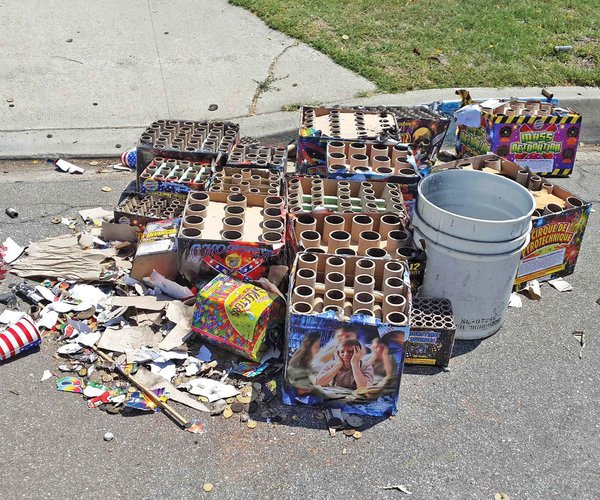Concerns about the wasting of water during the drought that has gripped California are what prompted the city of Ceres over and over during July to keep a watchful eye on residents negligent about water conservation.
The city received 34 calls about specific instances of water wasting by neighbors in July. City personnel issued 182 warnings about water wasting and issued 20 fines.
Ceres residents, however, are doing a good job in water conservation as a whole, especially since water meters were put in place. City well production totaled 297 million gallons, or 210 gallons per day per person. Peak water use was in 2007 at 262 gallons per capita per day. The annual average today is 154 gallons per person per day.
The city's new Automated Meter Reading (AMR) system allows Ceres households to track water use through a web portal. Residents must first set up an account by going to the city's website, http://meterportal.ci.ceres.ca.us/WaterSight/ and with user name and password can track hourly water use. The city said the feature allows residents to monitor for possible excessive water usage, such as due to leaks, and remedy them before getting surprised with a larger than normal water bill.
Currently only 1,115 residents - or 10 percent of households - make use of the web portal.
Also in July the city also issued 54 courtesy notices for possible leaks as detected through the AMR system.
In 201, 11,450 Ceres households were equipped with new meters and a radio transmitter. State lawmakers are forcing all California cities to go to water meters by 2025 because metering generally results in conservation and a 20 to 25 percent saving.
The city of Ceres continues to have an odd-even system of rationing water.
It also has implemented the conservation measures that the state recently enacted. They include banning:
• Washing down of driveways and sidewalks;
• Outdoor watering that causes excessive runoff;
• Use of an open hose without a shut-off nozzle;
• Use of potable water in fountains and/or decorative water features unless it uses recirculated water.





